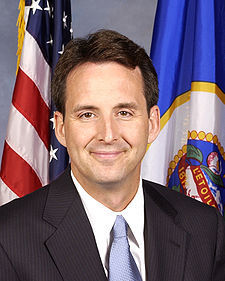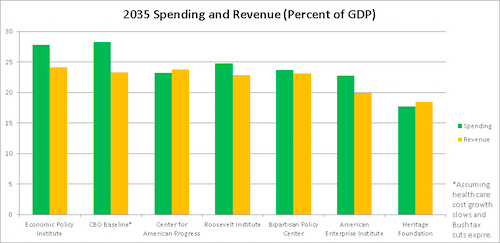Matthew Yglesias's Blog, page 2293
May 27, 2011
New Illinois Crime: Unlicensed Condominium Association Management
Kevin Drum was able to assure me yesterday that prohibitions on self-employed dental hygenists have been in decline recently, which is excellent news. Meanwhile, Carl emails this tale of a brand new entry-limited guild in Illinois, community association managers:
A community association manager performs certain identifiable tasks such as collecting assessments, controlling and disbursing funds of the association, holding meetings and preparing budget. A manager does not include the support staff and administrative personnel of a management organization. Volunteers who perform services for self-managed communities will also be exempt from the licensing requirement.
The primary qualifications of a manager are that an individual must be at least 21 years old, completed 20 hours of community association management courses and passed one of two specified examinations. As a concession to experienced managers, persons who have performed community association management for a period of five out of the last 10 years are exempt from the educational and testing requirement.
Here in the libertarian dystopia of Washington, DC we don't have these kind of rules and my condo association was, indeed, managed for a while by someone who was bad at her job. As a consequence, she got fired and replaced by a new person who's great at her job. It seems to me to be working fine as a system. And remarkably, it also seems to be working fine to the Illinois legislature since they exempted all the incumbent association managers from the new rule! These kind of grandfather clauses are oftentimes the giveaway in a new licensing scheme. If the problem is that community association managers are under-regulated then the people currently managing community associations are exactly the people you need to regulate more strictly. But if veterans are just looking to erect arbitrary barriers to entry, then obviously they'll exempt themselves.


Limited Humanitarian Intervention Watch
I'm not sure this is so much a shift as it is a tension bordering on incoherence that's been present from the beginning:
President Obama has subtly shifted Washington's public explanation of its goals in Libya, declaring now that he wants to assure the Libyan people are "finally free of 40 years of tyranny" at the hands of Col. Muammar el-Qaddafi, after first stating he wanted to protect civilians from massacres.
In defense, I guess, of the President the line as I understand it has always been this:
1) The policy of the United States of America is that Qaddafi is a tyrant who should be driven from power.
2) The UN Security Council has authorized a military intervention aimed at protecting civilians.
Therefore:
3) The United States is engaged in a kinetic military action for limited humanitarian purposes, while simultaneously pursuing regime change through other policy levers.
This policy, while logically coherent, is basically impossible to operationalize and in practice the military intervention has been beyond humanitarian from the very get-go.


Why Is China Buying Latin American Land?
A very interesting Alexei Barrionuevo article in The New York Times explores growing discomfort in Latin American capitals with Chinese land purchases. There are a lot of interesting issues here, but one that I don't think is explored fully to my satisfaction is the question of why China is doing this. Here's the capsule explanation:
The $7 billion agreement signed last month — to produce six million tons of soybeans a year — is one of several struck in recent weeks as China hurries to shore up its food security and offset its growing reliance on crops from the United States by pursuing vast tracts of Latin America's agricultural heartland.
Even as Brazil, Argentina and other nations move to impose limits on farmland purchases by foreigners, the Chinese are seeking to more directly control production themselves, taking their nation's fervor for agricultural self-sufficiency overseas.
If China wants to reduce its "growing reliance on crops from the United States" why doesn't it just buy crops from Latin America? Why buy cropland? Purchasing title to the land doesn't physically transfer it to inside the sovereign territory of the People's Republic of China. Indeed, if the Chinese government wants my advice it seems to me that large-scale purchases of foreign land are a uniquely unsound investment since it would be so easy for some future Brazilian or Argentine government to expropriate the land. Indeed, maybe the Sino-American War of 2021 will be specifically sparked by Argentina nationalizing Chinese land-holdings on a large scale, prompting the dispatch of the People's Liberation Army Navy on its first real blue water mission which, in turn, prompts President Jeb Bush to invoke the Monroe Doctrine and come to Argentina's defense.


Medicare Privatization Will Increase Health Care Spending
I've made this point before, but now courtesy of the Center on Budget and Policy Priorities we get it in convenient chart form. Not only does privatizing Medicare push a larger share of health care costs onto patients, but because Medicare uses market power to bargain down unit prices total health care spending actually goes up dramatically under a privatization scenario:

Now of course at some point in the further future, the Ryancare vouchers will be so stingy that out of pocket costs will be so high that middle class seniors genuinely can't afford them (especially since Medicaid will have been previously gutted) at which point inability to pay will become some kind of binding constraint on total spending. But in the real world, the combined political clout of the elderly, health care providers, and health insurance companies is going to prevent this from happening. The cost of the subsidies to insurance companies will have to bear some relationship to the price of health care services and it'll be adjusted upward. Patients will spend dramatically more out of pocket, taxpayers will see few if any savings, health care providers will be able to charge higher prices, and insurance companies will make a tidy profit skimming off the top.


Tim Pawlenty's Doing It Wrong

Former Minnesota Governor Tim Pawlenty continues to be the paper candidate who just can't catch fire. This is often attributed to him being "boring" but Allen McDuffie's reporting on the reaction to his big speech at the libertarian Cato Institute makes it seem like he's actually just a bit of a blunderer:
"I'm not one who is going to stand before you and tell you we should cut the defense budget," Pawlenty said.
More than one Cato representative called the remarks "disappointing." Cato Executive Vice-President David Boaz said Cato put a copy of a report in Pawlenty's hands that reflects their position on defense spending, "with the hope we can change his mind." Cato has consistently argued for a severe reduction in military interventions which would, in turn, require fewer service members, less equipment and lower operating costs.
There's nothing surprising about Mr Boring Conventional Conservative not wanting defense cuts. Nor is there anything surprising about the Don't Spend Money On Anything Cato Institute calling for defense cuts. But it's weird for a candidate with his choice of venues to show up at one that disagrees with him in this way and get into a fight. Pawlenty could have spoke at the Heritage Foundation or the American Enterprise Institute or any number of other boring conventional conservative policy outfits to burnish his boring conventional conservative credentials. But McDuffie confirms that "neither think tank had been approached by Pawlenty's offices to host this event, despite reflecting Pawlenty's position on these issues."


School Performance In New Orleans
After Hurricane Katrina, some fairly radical changes were made to the public education system in New Orleans, which had long been a very poor performer. The bulk of kids were placed into a new Recovery School District that undertook a lot of "reformy" moves. And to a crude examination, it seems to be working very nicely:

It'd be better to have NAEP data instead of state test stuff, and it'd be better to look at demographic sub-groups rather than the whole pie, since the hurricane also presumably set off demographic shifts in the city. These kind of problems are a reason why it's too bad that so few cities participate in the NAEP Trial Urban District Assessment program which gives us much better data. So kudos once again to Atlanta, Austin, Baltimore, Boston, Charlotte, Chicago, Cleveland, Detroit, DC, Fresno, Houston, Jefferson County Kentucky, Los Angeles, Miami, Milwaukee, New York, Philadelphia, and San Diego. But other big cities need to get on the bandwagon.
For now, though, New Orleans public school converging with the state average is good news for the city.


May 26, 2011
Endgame
Drink some more:
— Things like this weird piece from Bill Galston are why I really think people need to be pushed to acknowledge that Netanyahu is taking the stands he's taking because he genuinely opposes the creation of a Palestinian state.
— House GOP jobsplan features extremely large type.
— Big Moby is the best.
— Pork chart.
— Jeffrey Goldberg says time is on Palestine's side.
— The case for plutocracy strikes me as weak, but the case for less 401(k)s and more Social Security is strong.
It's CAP's annual party tonight so it's The Hold Steady "Party Pit".


Intellectual Property vs Free Speech

New York Stock Exchange (cc photo by Mike Fleming)
Another day, another cease and desist letter:
The New York Stock Exchange now claims that you have to get their permission (express or implicit) before you use images connected to the New York Stock Exchange. So if you find a wire photo of the trading floor and use it to illustrate a story on Wall Street, you're violating the NYSE's trademark because they've trademarked the trading floor itself.
We found this out yesterday when we got a cease and desist letter from the NYSE based on an article published at TPM back in November. You can see the letter here.
TPM is represented on Media and IP matters by extremely capable specialist outside counsel. And we've been advised that the NYSE's claims are baseless and ridiculous on their face. But this is yet another example of how many large corporations have given way to IP-mania, trying to bully smaller companies into submission with inane and legally specious claims of intellectual property rights.
And of course good for TPM for having extremely capable specialist outside counsel. And good for TPM's outside counsel for being so capable. But not only is this kind of IP bullying a form of rent-seeking by the bullies, it diverts social resources into things like being extremely capable specialist outside counsel for TPM on frivolous claims. There's an urgent need to recenter policy, debate, and legal precedent in this sphere on advancing legitimate public interests rather than the interests of lawyers and incumbents.


The Growth And Success Of Post-Jewish Zionism
Tanya Somanader has a post about a curious op-ed from Joe Walsh (R-IL) in which he castigates "most American Jews" for our insufficiently hawkish views on Israel. And over the weekend Dan Webster (R-FL) offered a plausible rebuttal to my contention that the US-Israel relationship has no concrete benefits for the United States by telling a televangelist that if "we stop helping Israel, we lose God's hand and we're in big time trouble."
See for yourself:
The existence of Christian Zionists is, of course, not new. But what is new is that Israeli politics has drifted toward the hawkish right over the past ten years even as Jewish Americans remain on the progressive left. That change in Israeli politics, meanwhile, has been in part driven by a demographic shift away from the kind of secular ashkenazi Jews who predominate in the American population. At the same time, Christian Zionist sentiment has boomed in America and the Palestinian cause has never been less popular among America's overwhelmingly non-Jewish population.
This is all part of what I've called the trend toward post-Jewish Zionism. That's not to say that there are no Jewish Zionists in the United States (or Canada, etc.) but merely to observe that Jews as such are decreasingly relevant to the politics of Israel. In Europe, too, we're seeing a boom of far-right parties (True Finns, Geert Wilders' Freedom Party, the Danish People's Party) with strong pro-Israel stands. And why shouldn't there be? An Israeli government whose policies are based on putting zero moral weight on the welfare of Arabs is a natural partner for xenophobic anti-Muslim parties who appeal more to Europe's local sociocultural majorities than to its small Jewish communities.


Budgeting For The Viltrumite Invasion of 2032
Something easily ignored in discussions of competing think tank visions of balancing the long-term budget is that most of the offerings don't actually balance the budget. The exceptions are CAP and the Heritage Foundation:

(click for larger view)
In terms of Heritage, I think a non-technical explanation of how they achieve a balanced budget is through laughable ideas about what a sustainable level of spending is. Check out AEI for a conservative presentation that makes some kind of sense, albeit representing an ethical worldview I can't endorse.
Among the progressive think tanks, the basic difference is that we spend less in order to achieve balance. I'm not sure what the official CAP position on this is, but I think there are two good reasons to map out a balanced budget strategy even though it's true that you don't need to do this in order to achieve economically necessary debt stabilization. One is that these are all obviously aspirational policy statements, not things that are going to happen in the real world. And what a balanced budget statement says is "these are public functions we think are worth spending money on, this is what they cost, and here's an economically smart way to pay for them." The message gets fuzzier if revenue – spending is a negative number.
The other thing, of course, is that "stuff happens." Nobody sitting down in 1925 to write a 25-year budget forecast would have made the funds available to win World War II. It's nice to think that you have a plan that leaves headroom to engage in some deficit spending if it turns out a meteor is going to strike the earth, or Jack Layton is the leading edge of a Viltrumite invasion.


Matthew Yglesias's Blog
- Matthew Yglesias's profile
- 72 followers



